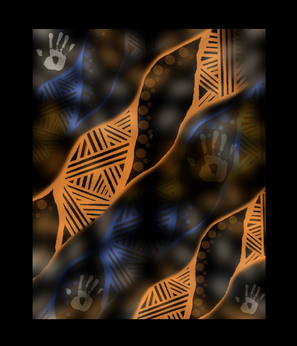 Interwoven Story-telling by Grace Williams (Community & Cultural Resource Officer, Leprena – UAICC Tasmania)
Interwoven Story-telling by Grace Williams (Community & Cultural Resource Officer, Leprena – UAICC Tasmania)
 Interwoven Story-telling by Grace Williams (Community & Cultural Resource Officer, Leprena – UAICC Tasmania) Interwoven Story-telling by Grace Williams (Community & Cultural Resource Officer, Leprena – UAICC Tasmania) Twenty years ago now, I was working with the First Nations arm of the National Council of Churches, and was involved in organising a series of events called ‘Hearts are Burning’, each designed to re-ignite positive Christian engagement with First Nations people, and, above all, to help First Nations’ Christian voices to be heard. For the gifts of First Nations’ Christians are vital to any healthy futures for faith in these lands now known as Australia. As one of our keynote speakers back then, the late Aboriginal Bishop Jim Leftwich, would repeatedly, and strikingly, affirm, ‘the mission field has become the mission force.’ In other words, it is those who first received the Gospel in colonial, even imperial, form, who are typically now best equipped to speak genuine ‘good news’ in these lands today. That is part of why we mark today in the Uniting Church as the Aboriginal “Day of Mourning”: both to recognise the continuing impact of past imperial and settler colonial violence and also, crucially, to hear the voice of the Spirit speaking again today through First Nations peoples. It is therefore a huge delight to have Aunty Ali Golding with us again this morning, and, in a few moments, I want to hand over to her to offer her own reflections. For I do not intend to say too much myself this morning, except to share, very briefly, three questions which arise for me from our Gospel, as we mark this Day of Mourning…
0 Comments
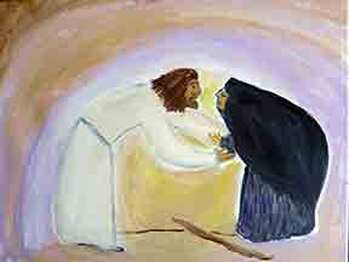 Jesus and the Bent Over Woman, by Sister Barbara Schwarz, www.artafiregallery.homestead.com Jesus and the Bent Over Woman, by Sister Barbara Schwarz, www.artafiregallery.homestead.com Today’s Gospel story is one which resonates powerfully with me. For I had lower back problems for many years, and I still vividly remember my back going into total spasm as I once tried to change trains at Strathfield station. I was bent double and simply could not move, despite the help of others. It was a key moment in which I began to realise that my life, and especially my relationship to my body, had to change. I had to start listening to my body, in which so many emotions, not least denied gender and sexual emotions, were trapped. Not simply physically, but in other ways, I had to learn to bend and unbend, more fully to know and flow into my life and spirit. Now, of course, not all our ailments and physical challenges have obvious spiritual connections. However many, in my experience, do, and this is certainly part of what the Gospel writer is trying to say to us in our story today. For whilst we may speculate on the likely form of physical arthritis with which the woman may have been afflicted, Luke is calling us to recognise our spiritual arthritis and its potential for transformation in God. At this time, in the life of this community, and the wider Church and world, it is perhaps well worth reflecting upon. Indeed, as we continue to ponder our own mission calling together, it is good to ask what bending and unbending might represent for us, not least in our prayer and worship life. For whilst it might be tempting to consider today’s Gospel story in relation to many whose physical bodies and lives need unbending, I believe that the great mystic Evelyn Underhill had it right when she said: We mostly spend our lives conjugating three verbs: to Want, to Have, and to Do… forgetting that none of these verbs have any ultimate significance, except so far as they are transcended by, and included in, the fundamental verb, to Be. Prayer and worship, she, and I, would propose, are about helping us with that fundamental verb: bending and unbending our lives and bodies, our whole selves, be-ing, in relationship to the Spirit of all…  photo: Saad Chaudry, by Unsplash photo: Saad Chaudry, by Unsplash Almost a hundred years ago, a notable book of English Modernist theological essays was published. One leading conservative voiced a classic critique. The book, he said, was a typical example of liberals thinking less about God and far too much about a secular audience. Liberals, he alleged, are constantly asking ‘what will Jones swallow?’ – Jones being the name for the supposed average person in the street. The response from the editor of the book was swift. ‘I am not asking what Jones will swallow’, he retorted, ‘I am Jones themselves, asking what there is to eat.’ For there is a big difference, isn’t there? The idea of asking ‘what will Jones swallow?’ is undoubtedly a conservative prejudgment of liberal intentions. Yet it can be one unfortunate dynamic in faith circles, sadly leading down the path of reductionism and beyond. Asking ‘what is there to eat?’ is a much more radical and open question, possibly leading even to revisiting aspects of diets left aside in the past. For a self-confessed ‘progressive’ church like Pitt Street Uniting Church, it is certainly a question which needs to be at the heart of our healthy spiritual pathways. After all, as the missionary theologian D.T. Niles once memorably said, sharing the Good News is essentially about ‘one beggar telling other beggars where to find bread.’ So what does this food look like today? And what does our reading this morning from John’s Gospel have to say? For John chapter 6 is a lengthy excursus on the bread of life, and how it may be found, or not. What challenges, and opportunities, does this raise for us, as individuals, and as a community together, at this stage in our development?... 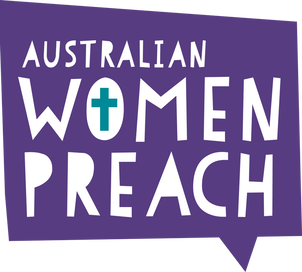 When my wife was ordained deacon in the Anglican Church, she was heavily pregnant with our twin daughters. ‘I am a holy trinity’, she famously declared in a subsequent homily. Of course, this was partly a joke, not a serious attempt to restate classic doctrine. Yet she was making vital points about the need to locate the great ecumenical doctrine of the Holy Trinity in life and experience, as well as in prayerful and intellectual rigour. We would certainly not want to over-exalt a female pregnant trinity, especially when its members are manifestly not equal or in reciprocity. However my wife had a case, I think, in drawing attention to deep aspects of mutuality, indwelling, and love. Not least she was highlighting how God as Holy Trinity is profoundly relational and embodied. For, whilst God in essence is transcendent, God’s energies are found dynamically in all aspects of our lives and world. In this sense. God in Holy Trinity is not only found in our variegated gendered experiences. God in Holy Trinity is always pregnant with possibilities of which we can but yet hardly dream. As Matthew 28.16-20 highlights, this is not only a declaration of profound loving mutuality. It is also an invitation to travel on to further transformation in the presence of a mystery which calls us into deeper being and becoming... 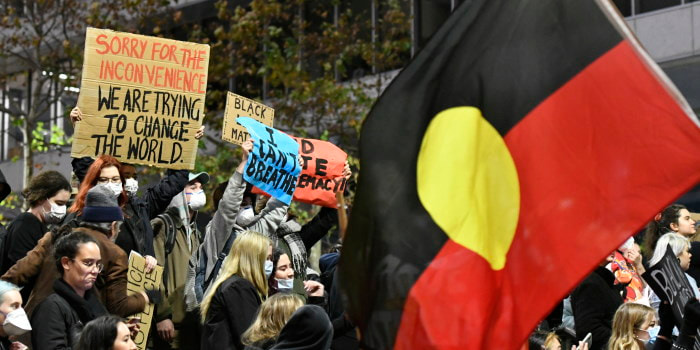 An anonymous poet wrote, ‘I am part of all I have met." Just think about that for a moment. I think they are saying that every person, every situation we encounter changes us – sometimes only slightly, sometimes profoundly. And the more open we are to the things and people we meet, the more likely we are to be changed by them and to carry them with us in our spirit, in our heart and in our physical being – for indeed our encounters write themselves on our very bodies...  Today is Trinity Sunday, when the church tries to describe the indescribable; to point to the character and action of the Divine that is always dynamic and evolving. The early teachers of the church came to describe God as Trinity – three equal ‘persons’ or expressions of God, Father, Son and Spirit – or in the beautiful and more inclusive language of Julian of Norwich, the Maker, the Lover and the Keeper. It is a picture of God as a community of equality. That in itself is of immense importance in a world where inequality and autocracy tend to rise up as we have seen this week in the United States. The picture of God as Trinity shows us how God’s very being and nature is about relationship and love. How might this picture of God as Trinity help us in these days of change and challenge across our world?... 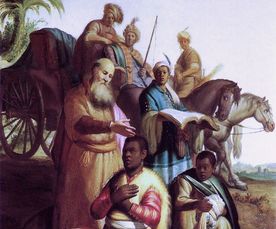 If the 3 ‘Rs’ have been said to be the foundation of learning, then there is a case for saying that the writer of Acts of the Apostles gives us 3 ‘Ps’ as the foundation of Christian identity and mission. For in Acts chapter 8 we read today’s passage about Philip and the eunuch. This is immediately followed, in chapter 9, by the story of Paul’s conversion and acceptance into the Christian community. Then, in chapter 10, we have the story of Peter’s strange dream which leads to his conversion to the full acceptance of Gentiles without demands. Typically these stories are treated separately, as discrete events in the life of the early Church. Yet I wonder. May they not actually be interconnected, as part of one truly remarkable story told by Acts? For in these stories we see something of how the early Jewish Christian sect became a highly engaged and outward looking community of radical inclusion: embracing the outcast, the oppressed and the oppressor, from whatever race, religion or other identity they came. This was a truly extraordinary shift in attitude and practice. Of course the seeds were very much present in the Hebrew scriptures and, above all, in the praxis of Jesus. Yet it still represents perhaps the greatest conversion in all Christian history: beyond, for example, the Church’s turn around on slavery or on the full acceptance and ministerial empowerment of women. No wonder therefore that the writer of Acts gives us three powerful stories to help us grasp the point. Sadly we sometimes divide them off from one another and tend to lose this dynamic. Peter and, especially, Paul’s stories then lose some of their context and bite. In the case of today’s story, of Philip and the eunuch, we can overlook it altogether. To do so may be to miss vital lessons for our mission and Christian self-identity today... 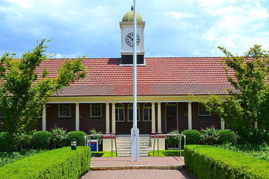 I am told that the former Archbishop of Sydney Peter Jensen was quite clear what entity needed to be at the heart of a flourishing diocese. ‘What is most important’, he once said, ‘is a good theological college.’ ‘And’, he added, ‘the most important thing within a good theological college is a good library.’ Perhaps on this site, we do not have to agree with everything else Peter Jensen has also said to concur positively. The role of good Christian education was, is, and always will be, vital to a healthy Church in any generation. So, as we remember Frederick Barker, the second bishop of Sydney, today, it is good to reflect on this and hold all aspects of Christian education in our prayers. For, alongside his sterling contributions to the missionary and organisational development of the Australian Church, far beyond the bounds of Sydney diocese itself, Bishop Barker is rightly to be honoured for the commitment and support he gave to the expansion of Australian Christian education in the crucial years between 1855 and 1880. For good and, in some respects, depending on your viewpoint, for ill, he was a huge formative influence in the shaping of Australian church history. So let me briefly highlight three aspects of his work and legacy…  When I was growing up, I was part of a church named after St Thomas, but we sadly rarely marked the apostle's saint's day. For the 21st December has often been the date for doing so in our Anglican calendar. Being so near to Christmas other things tend to overwhelm it. Admittedly, in the Easter season, we do tend to reflect upon the story of Thomas’ resurrection encounter. This is the Gospel reading in this morning’s pew sheet (John 20.24-29). It is a great story. Yet there is more to Thomas and his witness to God’s love than that and we can often miss that out. More recently indeed we therefore have the option of marking the feast of Thomas on this day, the 3rd of July, which is a great blessing. For it allows us to ponder Thomas, not only in relation to the resurrection, but also in relation to sharing God’s love with the wider world. So it is good also to reflect on the usual Gospel reading set for today (Luke 10.1-11). For Thomas is rightly revered today as a great missionary, not least across India, whose historic churches typically trace their origin to his sharing of the good news of God’s love and peace in the very early days after the resurrection. This is the mission of love and peace which Jesus entrusts to his followers: to Thomas and others down the centuries and to you and I in our own age… Jesus has come to his hometown. And of course everyone wants to see him and to hear their local hero speak. Next week we will hear how what he had to say next got him into trouble. But today we hear how he announces himself with words that must have been music to their ears - indeed the very next verse reads, 'and all spoke well of him'.
Jesus reads the words of Isaiah and takes them as his own mission statement - 'today this scripture has been fulfilled in your hearing " he says. It is a scripture that talks about good news for the poor, release to the captive, sight for the blind, and freedom for the oppressed.' Now most of his listeners would have counted themselves among the poor and oppressed, so no wonder they were pleased... |
Authors
sermons and reflections from Penny Jones & Josephine Inkpin, a same gender married Anglican clergy couple serving with the Uniting Church in Sydney Archives
June 2024
Categories
All
|
 RSS Feed
RSS Feed